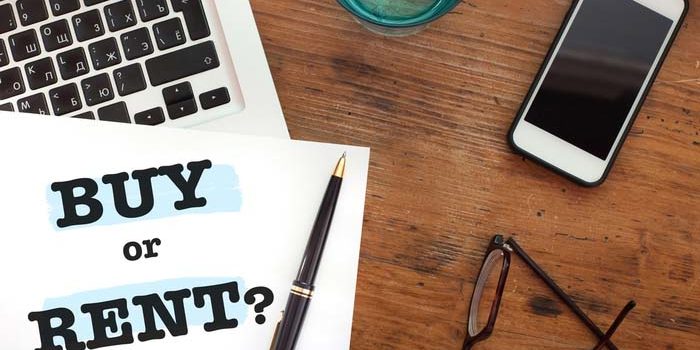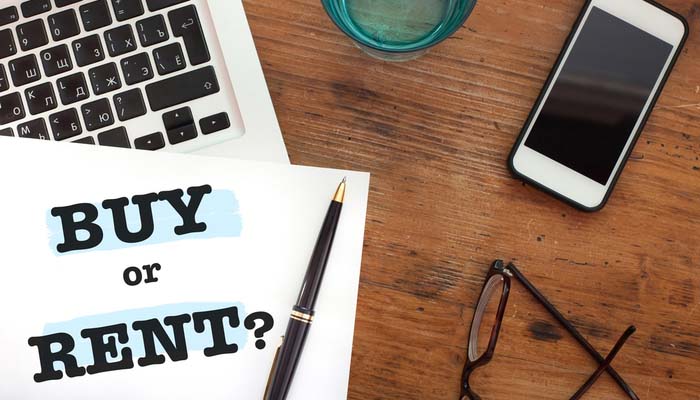


Should you rent or buy your home? It’s a question people have been asking for years, especially in crowded and expensive cities. Even out in the suburbs, though, it can be difficult to decide which is the right choice. Renting is cheaper in the short term, though owning gives you an asset you can later sell. Which is the better option?
Should You Rent or Buy Your Home?
The Case for Renting
Renting has some upsides. For one, it is less expensive over the short term. When you want to rent a property, you put a deposit down of about two months rent, then you pay a monthly fee to stay there. Your landlord pays for maintenance, upkeep and any repairs that need to be made. You also don’t have to pay property taxes, as you don’t own the place.
By not owning the place, you’re free from a lot of responsibility. It’s sort of like living at your parents house: it’s cheaper and everything is taken care of. You have no maintenance to worry about and just need to manage your living space. For people who are a little short on money or simply not staying in any one place for long, renting keeps you really freed up.
For people who are younger and don’t have as much money built up, this can be a very attractive proposition. That goes double for people who travel often and don’t want to be tied to one spot. Owning a home is a big responsibility, and largely tethers you to the spot. Unless you have a lot of money to keep a place up while you’re not there, it’s not practical to own a home and travel all over at the same time.
On the Other Hand…
On the flipside, if you rent a place, you can’t really do anything with it other than, you know, live there. If you have a dog or cats, you might pay extra for that. You also lose every penny you pay on the rent into the landlord’s pocket. The upkeep of the place, and timely payment of your rent, does nothing to increase your assets or financial security.
Also, remember, the landlord isn’t running a rental property out of kindness. They’re making a profit on you. You pay more, by design, for the space you’re renting than it’s worth. The landlord has to make money, right? Which means, by definition, you have to lose money in the long run for this arrangement to be profitable.
That’s not to say landlords are jerks or anything, but to illustrate why renting might not be right for someone in the long term. If you plan on investing in your future and settling in to one place, owning is likely the better situation for you.
Why Own
Owning a home has some notable upshots, namely that you’re investing in your future financial assets. Any money you pay into your mortgage is debt being alleviated from you. Any money put into repairs, upkeep and enhancements on your own home comes back to you by way of equity.
If you own your own land, you can build what you want on it (within the laws of your municipality), have who you want over and own a dog or cat without paying more. Generally speaking, it makes you the master of your own destiny.
Owning Considerations
It’s not all upside, though. You usually need to go into quite a bit of debt, via a mortgage, when you buy a home. You also take on the burden of paying property taxes when you own property. That means that, in the short term, owning is much more expensive.
It would also be unfair to not mention the price of upkeep on a home. When something breaks, it’s up to you to fix it. If the plumbing gets backed up, or if the electrical wiring is shot, you’re on the hook for those repairs. It’s hardly fun, but that’s the way owning a property works.
Bottom Line
However, these costs are largely mitigated by the equity your home gets as you live there over the years. Assuming you plan to stay in a home and keep it up over time, you should be able to at least break even when you go to sell.
Alternatively, if you plan on living the rest of your days in a location, the home’s equity could be a great boon to your children after you’re gone. That way, you leave them with either a home or a financial windfall.











No comments so far.
Be first to leave comment below.